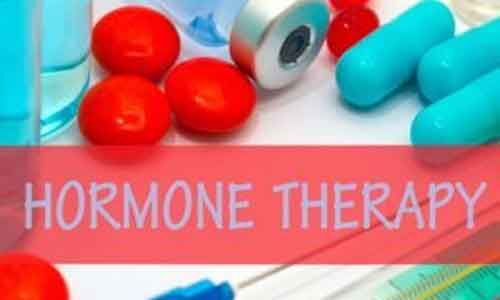- Home
- Medical news & Guidelines
- Anesthesiology
- Cardiology and CTVS
- Critical Care
- Dentistry
- Dermatology
- Diabetes and Endocrinology
- ENT
- Gastroenterology
- Medicine
- Nephrology
- Neurology
- Obstretics-Gynaecology
- Oncology
- Ophthalmology
- Orthopaedics
- Pediatrics-Neonatology
- Psychiatry
- Pulmonology
- Radiology
- Surgery
- Urology
- Laboratory Medicine
- Diet
- Nursing
- Paramedical
- Physiotherapy
- Health news
- Fact Check
- Bone Health Fact Check
- Brain Health Fact Check
- Cancer Related Fact Check
- Child Care Fact Check
- Dental and oral health fact check
- Diabetes and metabolic health fact check
- Diet and Nutrition Fact Check
- Eye and ENT Care Fact Check
- Fitness fact check
- Gut health fact check
- Heart health fact check
- Kidney health fact check
- Medical education fact check
- Men's health fact check
- Respiratory fact check
- Skin and hair care fact check
- Vaccine and Immunization fact check
- Women's health fact check
- AYUSH
- State News
- Andaman and Nicobar Islands
- Andhra Pradesh
- Arunachal Pradesh
- Assam
- Bihar
- Chandigarh
- Chattisgarh
- Dadra and Nagar Haveli
- Daman and Diu
- Delhi
- Goa
- Gujarat
- Haryana
- Himachal Pradesh
- Jammu & Kashmir
- Jharkhand
- Karnataka
- Kerala
- Ladakh
- Lakshadweep
- Madhya Pradesh
- Maharashtra
- Manipur
- Meghalaya
- Mizoram
- Nagaland
- Odisha
- Puducherry
- Punjab
- Rajasthan
- Sikkim
- Tamil Nadu
- Telangana
- Tripura
- Uttar Pradesh
- Uttrakhand
- West Bengal
- Medical Education
- Industry
Lower risk of COVID 19 in prostate cancer patients treated with hormone therapy: study

Men whose prostate cancer was treated with androgen-deprivation therapy (ADT) had a significantly lower risk of COVID-19 infection, according to a large retrospective study of Italian patients published in Annals of Oncology.
Cell entry of severe acute respiratory syndrome coronavirus 2 (SARS-CoV-2) depends on the binding of the viral spike (S) proteins to angiotensin-converting enzyme 2 and S protein priming by TMPRSS2. Inhibition of TMPRSS2 may work to block or decrease the severity of SARS-CoV-2 infections. Intriguingly, TMPRSS2 is an androgen-regulated gene that is up-regulated in prostate cancer where it supports tumor progression and is involved in a frequent genetic translocation with the ERG gene. First- or second-generation androgen-deprivation therapies (ADTs) decrease the levels of TMPRSS2.
M. Montopoli et. al. attached to the Department of Pharmaceutical and Pharmacological Sciences, Padova, Italy, carried out the study to find out whether androgen deprivation therapies (ADTs) may protect patients affected by prostate cancer from SARS-CoV-2 infections.
The study design consisted of data extracted from 9280 patients (4532 males) with laboratory-confirmed SARS-CoV2 infection from 68 hospitals in Veneto, one of the Italian regions that were most affected by the coronavirus disease 2019 (COVID-19) pandemic.
The parameters used for each COVID-19-positive patient were sex, hospitalization, admission to an intensive care unit, death, tumor diagnosis, prostate cancer diagnosis, and ADT.
The key findings that emerged are as follows-
- Overall, males developed more severe complications, were more frequently hospitalized, and had a worse clinical outcome than females.
- Considering only the Veneto male population (2.4 million men), 0.2% and 0.3% of non-cancer and cancer patients, respectively, tested positive for SARS-CoV-2.
- Comparing the total number of SARS-CoV-2-positive cases, prostate cancer patients receiving ADT had a significantly lower risk of SARS-CoV-2 infection compared with patients who did not receive ADT (OR 4.05; 95% CI 1.55 -10.59).
- A greater difference was found comparing prostate cancer patients receiving ADT with patients with any other type of cancer (OR 4.86; 95% CI 1.88 -12.56).
"Our data suggest that cancer patients have an increased risk of SARS-CoV-2 infections compared with noncancer patients. However, prostate cancer patients receiving ADT appears to be partially protected from SARS-CoV-2 infections" said the authors.
For the full article click on the link: https://doi.org/10.1016/j.annonc.2020.04.479
Dr Satabdi Saha (BDS, MDS) is a practicing pediatric dentist with a keen interest in new medical researches and updates. She has completed her BDS from North Bengal Dental College ,Darjeeling. Then she went on to secure an ALL INDIA NEET PG rank and completed her MDS from the first dental college in the country – Dr R. Ahmed Dental College and Hospital. She is currently attached to The Marwari Relief Society Hospital as a consultant along with private practice of 2 years. She has published scientific papers in national and international journals. Her strong passion of sharing knowledge with the medical fraternity has motivated her to be a part of Medical Dialogues.
Dr Kamal Kant Kohli-MBBS, DTCD- a chest specialist with more than 30 years of practice and a flair for writing clinical articles, Dr Kamal Kant Kohli joined Medical Dialogues as a Chief Editor of Medical News. Besides writing articles, as an editor, he proofreads and verifies all the medical content published on Medical Dialogues including those coming from journals, studies,medical conferences,guidelines etc. Email: drkohli@medicaldialogues.in. Contact no. 011-43720751


